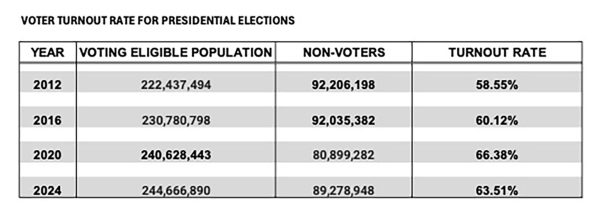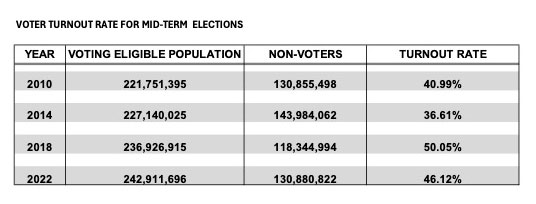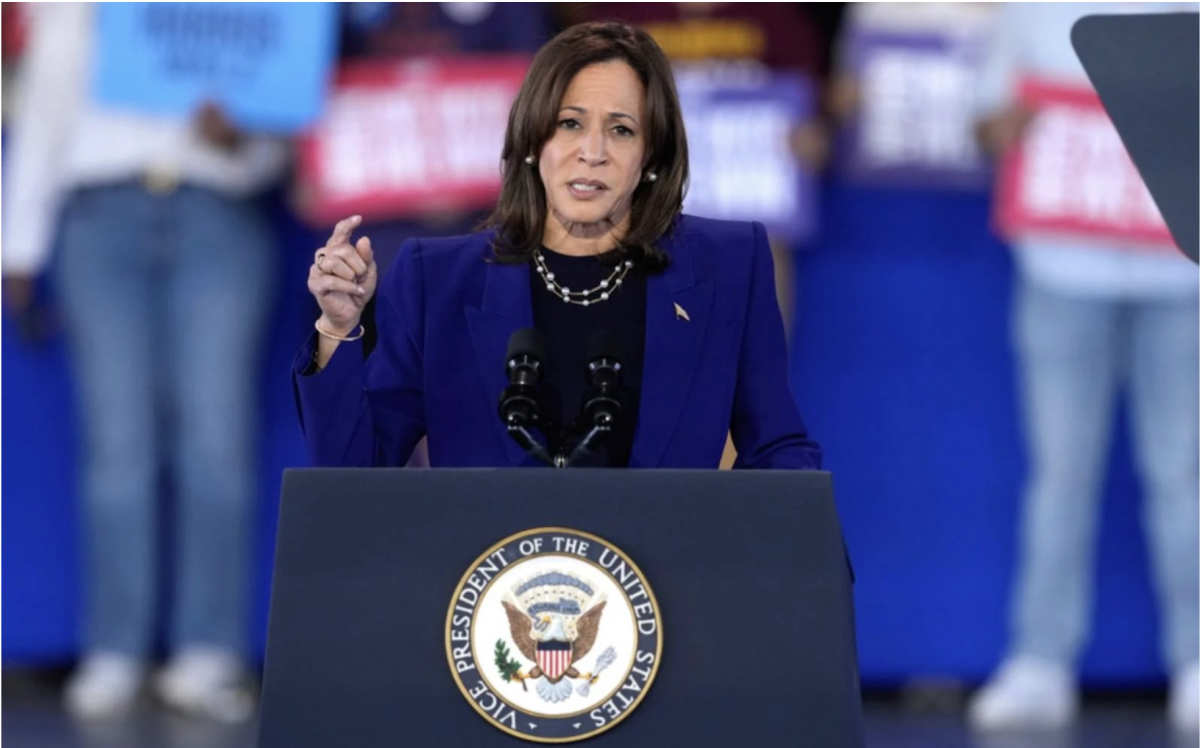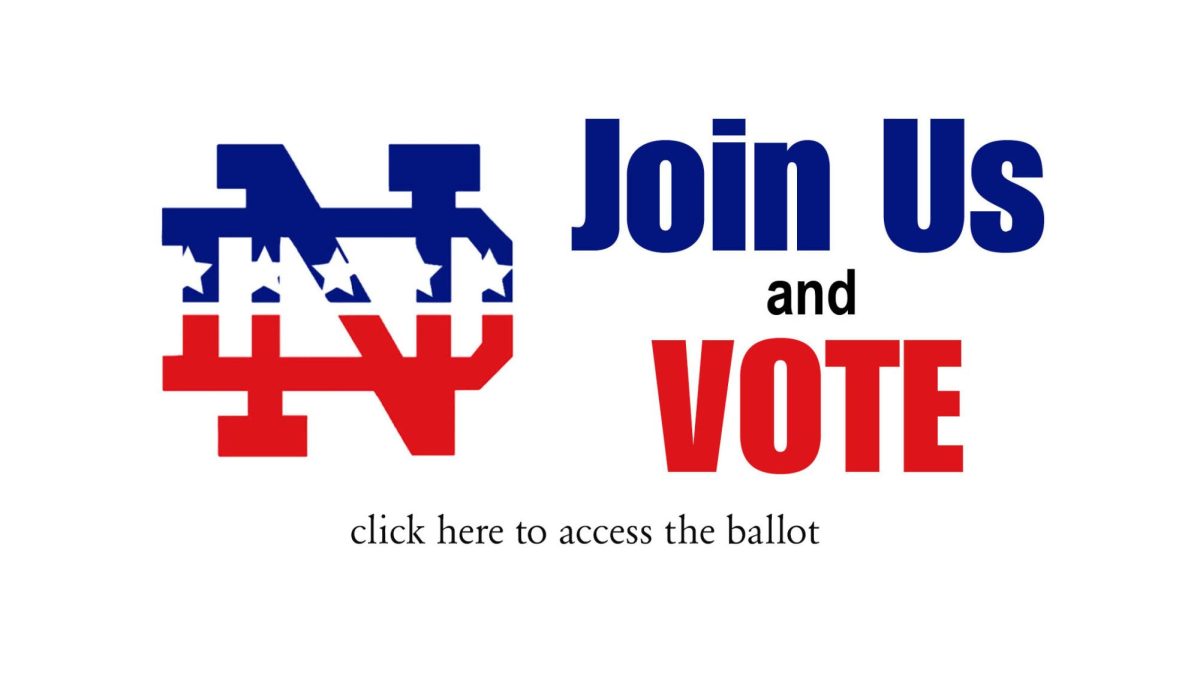The vote is the most powerful instrument ever devised by human beings for breaking down injustice and destroying the terrible walls which imprison people because they are different from others. ~President Lyndon B. Johnson~
In 1776, Thomas Jefferson and members of the Second Continental Congress wrote the Declaration of Independence. In it, they stated that to secure the unalienable rights of men among which were Life, Liberty and the pursuit of Happiness, “[g]overnments are instituted among Men, deriving their just powers from the consent of the governed.”
At that time, the idea of “consent” did not mean that every citizen would have an opportunity to give their approval regarding the manner in which they would be governed.
During the first Presidential election in 1789, only individuals who were white, male, and landowners over the age of 21 could vote.
States, however, were given the power to regulate their own voting laws and in some states, Catholics, Jews, and Quakers were barred from voting in the election.
Between the period of 1789 and 1828, different states passed many new laws either granting or denying individuals the right to vote based on land ownership, sex, race, creed, color, taxation, and citizenship.
Those times were contentious, with people questioning why they could not vote, not only about leadership, but about laws that would govern them.
In 1863, two years prior to the end of the Civil War, President Abraham Lincoln delivered an eloquent speech that described equality and the foundation of our democracy.
“That this nation, under God, shall have a new birth of freedom and that government of the people, by the people, for the people, shall not perish from the earth.” (Gettysburg Address)
The ideas were inspiring, but a nation divided by different ideologies of freedom, equality, and governance would struggle to make these ideas a reality.
Fast-forward to 1868 and the passage of the 14th Amendment. Citizenship was defined and granted to former slaves.
And in 1870, with the passage of the 15th Amendment, the right to vote was guaranteed to all men, regardless of race, color, or previous condition of servitude. But, once again, states began enacting their own laws such as voting taxes and literacy tests that restricted African Americans from being able to vote.
In March of that year, Thomas Mundy Peterson becomes the first African American to vote in a local election, but the right to vote was still fraught with challenges.
Since then, the voting right has been fought for and made available to people whose voices were historically silenced. This finally included women, who gained the right to vote in 1920.
ND history teacher, Ms. Nazlikian, said “It’s nice to know your voice can be heard and that your vote can make a difference.”
Such a fundamental right of our nation should be taken very seriously; however, some citizens don’t seem to think their vote matters. Voter apathy is a real problem in the United States. Even during Presidential election cycles, arguably the most important times exercise the right to vote, less than 70% of all eligible voters participated.
According to data gathered by University of Florida Election Lab, voter turnout for the last four Presidential elections indicated a substantial number of the voting eligible population of the United States–Americans 18 years or older, minus ineligible noncitizens and felons—did not participate in the election process.

Smaller turnouts of voters also means that the result will be decided by even smaller numbers. In fact, the election of 2000 between George W. Bush and Al Gore was decided by 537 votes. Yup, 537, less than 0.009% of the state of Florida. If 538 more Gore voters went to the polls that day, there would have been a different president from 2000-2008. So yes, your vote matters.
For non-Presidential elections, there is an even smaller turnout of voters.
Midterm General Elections, where citizens in each state vote for their congressional representatives, are no exception. While Presidential General Elections are every four years, the Midterm elections fall in between at the 2-year mark. These elections are particularly important because they can determine who has the majority in the Senate and the House of Representatives.
The voter turnout for the last four midterm elections gathered by University of Florida Election Lab, indicated an even lower participation in the election process.

There are also other state and local elections where citizens can vote for mayors, governors, and district leaders, judges, city council members, and other elected offices.
When asked why some people don’t vote, Ms. Nazlikian said, “I think that some people think that their one vote doesn’t matter and that the results will happen either way which isn’t true. . . . I think that voting needs to be promoted in a more positive way especially to the younger generation.”
One aspect that prevents people from voting is confusion on how the process and system of voting works. ND student, Alexis Torres ’26, said “I know the overall system, but I definitely don’t know the specifics. I think having more detailed information about the election going around on social media would be helpful.”
ELECTORAL COLLEGE
The president is elected by what’s called the electoral college, which is confusing to many people. The presidency is not determined by popular vote. It is determined by the electoral college.
“Electoral votes are allocated among the States based on the Census. Every State is allocated a number of votes equal to the number of Senators and Representatives in its U.S. Congressional delegation—two votes for its Senators in the U.S. Senate plus a number of votes equal to the number of its Congressional districts.
Under the 23rd Amendment of the Constitution, the District of Columbia is allocated three electors and treated like a State for purposes of the Electoral College.” (archives.gov)
This is one of the reasons that Census data is very important.
Using this calculation method each state and territory in the United States has a designated number of electoral college votes. California, with one of the largest populations, has 55 electoral votes and Wyoming, with a substantially smaller population, gets 3 electoral votes.
The Presidential candidate who wins the popular vote in each state or territory, earns all the electoral votes in that state. The exceptions to that are the states of Maine and Nebraska who allocate electoral college votes by congressional district.
For example, in this latest presidential election, 7,026,888 citizens voted in the state of Pennsylvania. Donald Trump received 3,540,265 votes, Kamala Harris received 3,417,872 votes, and Jill Stein received 34,463 votes. Donald Trump won the popular vote in the state and earned all 19 of Pennsylvania’s electoral college votes.
Currently, among the states and territories, there are 538 electoral votes available. Therefore, to win a presidential election, the candidate must get the majority of those votes or at least 270 electoral votes.
VOTER MISINFORMATION AND DISINFORMATION
In a society where many more and more people turn to social media for news and information, voters may find themselves challenged to find credible sources to help them make voting decisions.
An additional challenge that surrounds voting nowadays is misinformation and disinformation. Voters are constantly being bombarded with false rumors being spread on social media.
An article posted by brookings.edu offered the following commentary on how disinformation defined the 2024 election narrative.
- In a situation where public confidence in news reporters is very low and new generative AI tools make it easy to create and disseminate fake pictures, videos, and narratives, the 2024 campaign was rife with organized efforts to sway voters, twist perceptions, and make people believe negative material about various candidates.
- One video featured a Haitian man (although he was not really Haitian) saying he had just gotten to the United States and had voted in two counties—Gwinnett and Fulton—in Georgia, but it turned out to be a fake video made in Russia.
- Polling data suggest that false claims affected how people saw the candidates, their views about leading issues such as the economy, immigration, and crime, and the way the news media covered the campaign.
Today, it’s harder than ever to decipher what is true, which is why it is your duty, as an American citizen, to do your research!
Voting is a privilege and a part of what it means to be a good citizen. Actively participating and engaging in our country’s political system helps create a better, more represented nation for everyone.
We all have the opportunity to contribute to a nation where every voice is valued and heard, but if you don’t speak up, how will your concerns be addressed? How will anything change?
The 2024 Presidential election may be over, but the mid-term elections on November 3, 2026, will be here before you know it.
Make sure to encourage all your friends and family who are eligible to vote to do so!
Remember, your voice matters and deserves to be heard. Voting is power!




